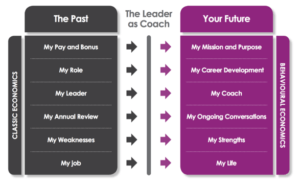
Getting to know your people is more than just small talk. In a world that has become impersonal, where the big things make little difference, it’s often the little things which make a big difference. Do you actually know the people who work in your business, your department, your team? I don’t just mean know their name, their family set-up, how they like their tea. I mean what makes them tick, why do they come to work every day, what are they striving to achieve?
More than just small talk: how well do you know your people?
So you might be reading this and thinking Royston I know my people, I’ve got this one covered. Great. Here’s a little trivia test to sense check your perception against reality…
Q1. Can you name any hobbies or interests that your people are involved in?
Q2. Do any of your team have children / grand-children – do you know their names and ages?
Q3. Is anyone dealing with a family crisis or personal issue that might be effecting their work and wellbeing?
Q4. How do your people feel about their jobs? Happy and satisfied, indifferent or disengaged?
Q5. Why do your people get out of bed everything morning and come to work? Do they just want to earn a pay check, or are they looking to learn and grow and to make a contribution?
How did you do? Is it time you got to know your people better?
One of the keys to unlocking a motivational environment is to clearly understand your people’s WHY, their personal goals, and how being successful at work can be one of the vehicles and enablers in helping them realise their goals.
The moment we create the bridge in their mind – the link between their personal goals, business goals and what they do daily during work – self-motivation kicks in. This is the defining moment a person changes from someone with a job to someone with a purpose.
The old way of thinking focused solely on pay, bonus, role, annual performance reviews is just that, old. The new breed of leader connects an individual’s PERSONAL mission & purpose to that of the business and takes a genuine interest in their wellbeing and needs inside and outside of the workplace. They take time to engage in the small talk as they are authentic and genuinely interested in them as individuals.

Small talk…’I want to take the kids to DisneyWorld’
One of my clients was so excited by this idea he sat down individually with all his team members to understand what they wanted to achieve, why that was important to them and how he could help them achieve it.
In doing so he found out one of the team wanted to earn a £10,000 bonus so that he could take his wife and two children to DisneyWorld (his motivational trigger). Here’s the important part it’s not the money that is the critical factor – it’s what the money allows them to do in their lives.
Once the manager knew the why he could then talk about the what and most importantly the how – what high performing weeks needed to look like in order to get to DisneyWorld.
Engaging with your people at a deeper emotional level, not just a logical level, and really understanding the why from their perspective, will give you knowledge of their motivational triggers. Why people come to your workplace every morning is driven by far more than just financial factors such as salary and benefits.
Increasingly, non-monetary rewards are becoming highly valued by employees; the flexibility to spend time with children and attend school functions and sports days, home working days, sabbaticals, flexi-time plus many more.
To understand which non-monetary rewards mean something, which could make a positive difference in their life outside of work, you have to know your people beyond their work role.
Leaders that consider people as merely a paid resource have difficulty retaining good people and generally end up over populated with under performers. Those leaders who truly value their people as their greatest asset and demonstrate it through their actions are positioned to get the best out of them which is certainly one of the ten drivers for business growth.
Are your people your greatest asset?
Here’s some additional resources to help you answer the question…
3 core principles for growing and developing your people
How to build a pipeline of promising performers


